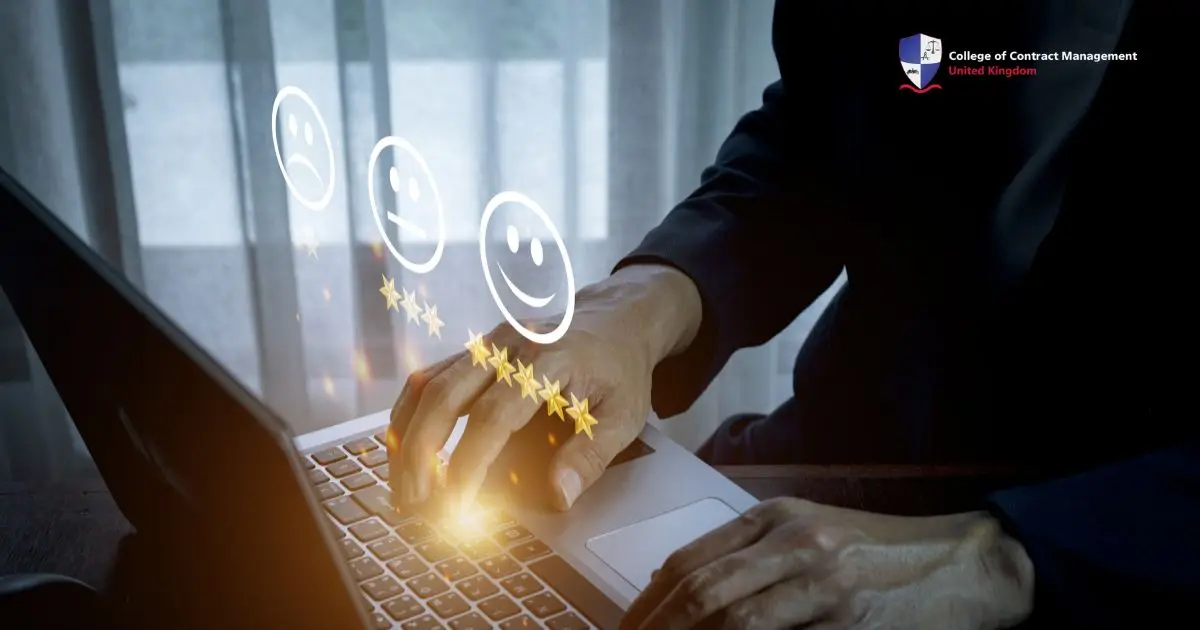In this article, we will explore an important aspect of today’s digital environment: online reviews. Recall your most recent online purchase—have you actually taken the time to read through reviews before buying? Reviews act like shortcuts for your shopping experience—they can guide you in deciding whether a product is worth your investment. There are numerous platforms for reading reviews, but one prominent site is Trustpilot.
This is a platform where genuine customers share their experiences with various products and services. The reviews may differ; while some can be quite detailed and reliable, others will be just vague or perhaps inaccurate. And again, how do you know which reviews are trustworthy? Sometimes, when purchasing an article for oneself or running a business that should get people's trust, knowing how to identify real reviews can bring considerable returns.
Looking at trusted reviews could save you a lot of time, money, and irritation. These guidelines serve as your manual about the effective use of Trustpilot, thereby allowing you to make better choices. Read on further so you can then learn how to identify the really important reviews.
What is TrustPilot and why does it matter?
Trustpilot is like a big, public, online bulletin board where anybody can put a review about a business that he or she has been to. It is like a friend telling you about this awesome new restaurant or warning you about this totally sketchy website, but with the whole world standing behind them. Listed down below is a look at what makes the platform so important:
- In the case of the consumer: It is making the person choose smarter options while buying stuff. One looks at what others have to say about it before making a verdict about whether something is worth the money.
- For business: It's their way of doing quality proofing. They present their customers with good reviews to get that trust.
- For everyone: A place to collect honest opinions and keep the interaction open.
At its most basic, Trustpilot is a bridge between consumers and businesses, so it fosters open communication between both parties. Therefore, it accounts for mutual accountability and trust, which benefits both parties. That is what makes it such a useful tool for both consumers and businesses.
Online Reviews Influence Purchases
Let us examine how crucial online reviews are in buying decisions. Take reviews for something like asking your buddies, "Is this any good?" only instead of your small circle of friends, you're getting the answers from thousands of people all over the world. Reviews do not only reflect your purchase, but they also facilitate obtaining good intelligence and avoiding quick decisions that can later turn out to be troublesome.
Here is the fact: research shows that more than 90% of people look for reviews before making a purchase. This ie because reviews give more real insights about things, like whether the product delivers as promised or whether they’re hoaxes for quick sales. Many platforms, such as Trustpilot, do so by routing you through an array of unbiased feedback.
Reasons why online reviews are essential:
- People trust reviews almost as much as they trust the recommendations of their friends and family.
- A review has the power to influence the purchase of anything from a $10 device to costly purchases like a laptop or vehicle.
- Positive reviews encourage people to buy a product or service; a long line of negative reviews may send a customer in the opposite direction.
What makes Trustpilot unique from other sites for reviews
Let us find out what are the specific differentiation factors for Trustpilot against other review sites. The user has probably seen websites that looked dubious or uncomfortable. Thus, the review site is clearly different in that sense, for it has amazing openness and user-friendliness as all users contribute to a pristine environment. That is how the platform works to enable honest communication between customers and companies. Therefore, it is a good thing many people depend on it for reviews. Here is what separates the review site from the others:
- It authenticates reviews. This means they have tools to make sure the reviews are real and not fake, so you can trust what you’re reading.
- Businesses can respond to reviews. This allows companies to address customer complaints or thank customers, which builds trust and shows they care.
- It has helpful filters. You can search for the most relevant reviews, like the latest ones or ones about a specific issue, so you don’t waste time.
Understanding review authenticity and spotting fake reviews
Let’s learn about how to spot the real ones from the fake ones. Why does this matter? Because fake reviews can trick you into buying something that’s not worth your money—or worse, completely unreliable. Consequently, platforms like Trustpilot work hard to catch fake reviews using special algorithms and manual checks. But here’s the thing: you’ve got to do your part too! Knowing how to spot fake reviews will help you make smarter choices.
Here’s what to watch out for:
- Look for detailed reviews. Real reviews usually share personal stories or specifics, such as “The product arrived in two days, and the quality was great for the price.”
- Avoid generic reviews. If something just says, “Amazing product! Best ever!” or “Horrible, don’t buy!” with no details, it might not be legit.
- Learn about the background of the reviewer. If a person has just one review or sounds oddly enthusiastic with just positive benefits, it can be a red flag.
Ways to distinguish authentic Trustpilot reviews
Now, let's talk about how we differentiate real reviews on Trustpilot. Reviews are clues; learn to read the signs and be able to distinguish trustworthy reviews from the others. Authentic reviews often contain specific details, real-life experiences, and language that feels genuine. Thus, taking a little time to check these things will help you avoid fake reviews and make better, more informed decisions.
Here’s how you can spot a real review:
- Look for specific details. You may find real reviews appear with some examples like, "I have been using this product for three months and it's performing really well," or "The customer service was quick to resolve my issue."
- Avoid using overly dramatic or too generic language. For instance, a review will say, "This product is AMAZING!" or "Worst purchase ever!" It doesn't lend itself to much trustworthiness if it doesn't further explain why the reviewer feels that way.
- Check the reviewer’s profile. If a reviewer has written lots of reviews over time, they’re more likely to be credible. If it’s a one-time reviewer with only one or two reviews, be cautious.
Making customers have confidence with Trustpilot
It's not impossible nowadays to express how customers trust companies; it will now be about how such platforms help companies gain clients' trust. Picture this: if a company has great reviews and actively responds to customers, wouldn't that inspire you to go ahead and purchase it? That’s the magic of platforms like this—they’re not just about reviews; they’re about building relationships and credibility. When businesses use platforms like Trustpilot well, it’s like having a conversation with their customers. In other words, it builds confidence, loyalty, and a stronger connection.
Here’s how businesses can make the most of the site:
- Respond to reviews. When a business takes the time to reply, whether it’s to thank someone for a positive review or address a problem, it shows it cares about its customers.
- Positive Reviews. One of the best methods to attract praise is to put down the really good ones in review form and say, "Look at all our satisfied customers."
- Connect on an honest level. By responding to reviews sincerely, organisations can build a legacy of trust with their clientele.
Analyse Trustpilot considering product and service acquisition
We shall look at how organisations invest their efforts in exploiting feedback for better services. Review is not entirely for customers; it serves as a report card for the enterprise where it has done well and where it is falling short. There is no better site than Trustpilot for this kind of evaluation, customer-centric and direct. Therefore, it has to be listened to before all the various refinements of products or services an organisation can make warrant customer satisfaction and ward off competition.
Here's how businesses might use reviews to better themselves:
- Find common problem areas. If lots of customers comment on the same subject, such as "shipping delays," or if "the product malfunctioned within a week," this means there are certain areas in need of attention.
- Focus on strengths. Positive remarks, such as "Excellent customer service!" or "Fantastic value for money," reveal what businesses are actually doing well and can help direct these successful practises.
- Communicate with reviewers. A business gets to know what really matters to its audience by thanking customers or asking them for more information.
Expert tips for finding the best reviews
Let’s go over some expert tips for finding the best reviews on Trustpilot. Think of this like finding the gold nuggets in a big pile of information. Thus, if you know how to search and analyse, you’ll get the most out of the platform and make smarter decisions. By using these strategies, you can cut through the noise and find the reviews that really matter to your decisions.
Here’s how to do it:
- Use filters. Trustpilot lets you sort reviews by things like rating, date, or relevance. For example, you can look at only 4- or 5-star reviews or check the most recent ones to see how a business is doing now.
- Look for recurring themes. Pay attention to what multiple people are saying. If many reviews mention “fast shipping” or “bad customer service,” that’s probably a pattern worth noting.
- Prioritise recent reviews. Businesses can change over time, so focusing on newer reviews gives you the most up-to-date insights about their products or services.
Addressing niche needs on Trustpilot
Let’s talk about how Trustpilot can help with niche needs—not just for shopping but for industries like education and training. The platform isn’t just about finding the best gadgets or shoes; it’s also a great tool for checking out things like online courses or professional development programmes. By focusing on these strategies, you can uncover valuable insights about niche services and make better decisions for your personal goals.
Here’s how you can make the most of it:
- Filter reviews by keywords. If you’re looking into something specific, like “contract management” or “education,” use those keywords in your search. It’ll help you find the reviews that matter most.
- Look for specific outcomes. Pay attention to reviews that mention results, like “This course helped me get a job” or “I improved my skills in three months.” Those details can give you a clear picture of what to expect.
Your Next Step Toward Smarter Decisions
Let’s talk about taking the next step toward making smarter decisions. Learning how to spot the best reviews on Trustpilot isn’t just a skill—it’s a tool that can help you spend your time and money wisely. By using the tips we’ve gone over, you’ll feel more confident in navigating the platform and finding the insights that matter most to you.
And if you’re looking for ways to grow your knowledge and career, check out the College of Contract Management. They offer trustworthy educational resources and professional development courses, both of which are crafted to help you succeed. Thus, this is the right time to get things moving, whether you are doing it for school, work, or personal goals. Make your next step today and start building an enviable future.





